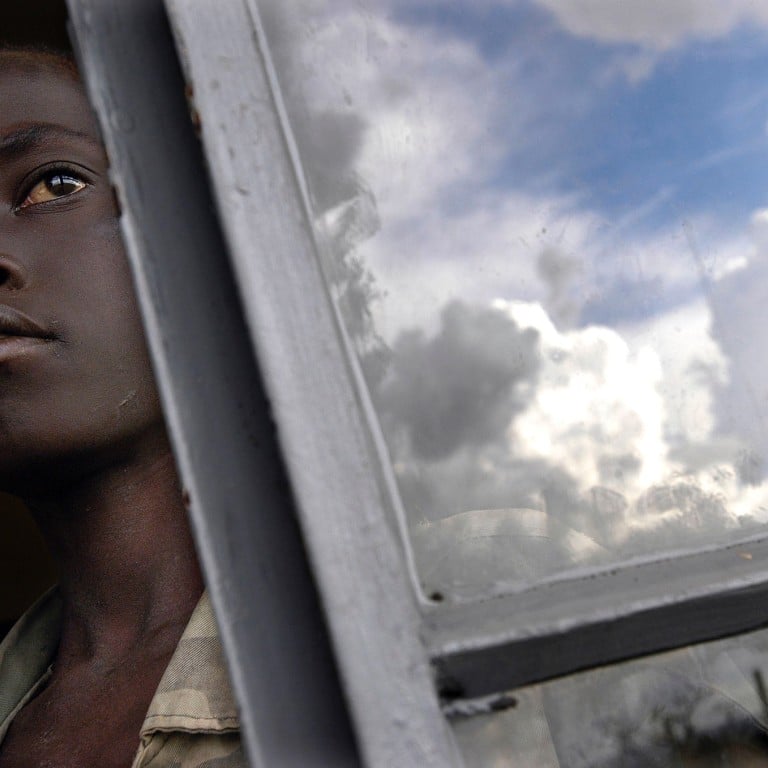
Healing power of football is immense
After years of violence, Uganda's former child soldiers are finding solace in the beautiful game as they try to return to normal life
Should you find yourself on the six-hour drive from the Ugandan capital Kampala to Gulu town in the country's far, malaria-infested north, try to avoid travelling during an English Premier League match between title contenders.
Avid Liverpool fan and driver Julius Kalema was so caught up in last Sunday's Reds v Chelsea showdown that the manner in which he approached potholes depended on the attacking or defensive moves of Brendan Rodgers' men.
A Liverpool advance on the "two buses" parked thousands of miles away in front of the Chelsea goal at Anfield would see the mini-craters rammed rather than negotiated.
It is powerful, moving art and the juxtaposition of footballs in one sequence and AK-47s in the next is stark
As the Reds defended, the car would slow slightly and the bitumen abysses would be afforded the respect they deserved by Julius, his ear cocked towards the radio.
Passing through the dusty, run-down towns, TVs blared and boomed with the commentary from small shops and shanty bars.
The church remains strong in Uganda, but given the congregations of Manchester, Liverpool, Arsenal, Chelsea and Barcelona shirts, you would be forgiven for believing football is the only faith.
"Mourinho. He is the master," conceded Julius at the final whistle, the 2-0 disappointment etched on his face.
He pushed the likely mugging of the title from his mind and got on with swerving to avoid the overloaded trucks, crammed minibuses, water-carrying pedestrians and wobbling cyclists.
He finger-counted on the steering wheel as he worked out the points needed to squeeze Liverpool past the finish line as champions.
We discussed Liverpool's rebirth under Rodgers and we nodded in agreement at the remarkable villain-to-hero transformation of Luis Suarez, who was deservedly crowned by his peers as player of the season this week.
Last year's social pariah was a fitting topic given our journey's destination. A world away, we were speeding to visit outcasts undergoing rehabilitation.
Peter, Francis, William, David, Joseph and Dennis are all former child soldiers of Joseph Kony's Lord's Resistance Army. They survived the longest-running guerilla war in modern history.

Violently abducted from their schools or homes aged 11 to 13, the young men, now all in their early 20s, have been rescued over the past few months.
They are among hundreds of children snatched from their families, their childhood stolen during years of forced marches, brainwashing, and physical and emotional abuse.
Now, they are in the custody of the Child Soldier Rehabilitation Centre, run by international children's charity World Vision, where they receive counselling and help to track down their relatives.
They are also prepared for a return to their families and communities, usually a happy reunion, but one often later blighted by stigma; many wrongly, but understandably, fear these young men because of their unimaginable and violent upbringing.
One of the therapies to help reverse Kony's brainwashing is drawing what lays heavy on their minds.
A giant mural painted by other abductees that have passed through the gates hangs in the centre as inspiration.
It depicts their journey and shows them taken from loving homes, schools and kick-a-bouts on community pitches at gunpoint.
Parents and relatives are pictured hacked to death, and their huts set ablaze by men in combat fatigues and Mohican haircuts.
Tethered at the waist they are marched through forests, fording crocodile-infested rivers. They draw themselves lying in cover on numerous ambushes and gunfights.
A helicopter gunship swirls above spitting fire, and all the other hell and perverseness unleashed by Kony and his cronies for nearly 20 years flows along the wall.
The mural ends with the young men's hopes - back at school and the homes where children chase a football. It is powerful, moving art and the juxtaposition of footballs in one sequence and AK-47s in the next is stark.

"We played football in the barracks in the bush and we would hear about the EPL and the teams like Manchester United and Arsenal on our commanders' radio [used mainly to learn about government offences against the rebels]," said 23-year-old Francis.
"But since we've been here, we don't know how they have done this season."
William, 23, could not play even if the centre had a ball. He reveals a wound in his chest where a bullet is still lodged after he was struck during an ambush.
In between counselling and group therapy, the men sit silently together in the shade and stare with distant eyes.
The centre operates on a shoestring budget, but its work is vital. Most of the returnees who come through its gates are back in their communities.
The lack of a football called for urgent action. A shop was found and a kick-around soon got under way.
As the African night fell on us, the ball was placed for safe keeping in the nurse's office and the men waved goodbye from the shadows of their dormitory.
"Playing football will take their minds off their thoughts. They sit too much and think about all the bad things. Playing will help them escape if only for a while," said Julius.
Who can deny football is great, cheap therapy - that and a radio, too. Because there's nothing like EPL showdowns to focus the mind.

